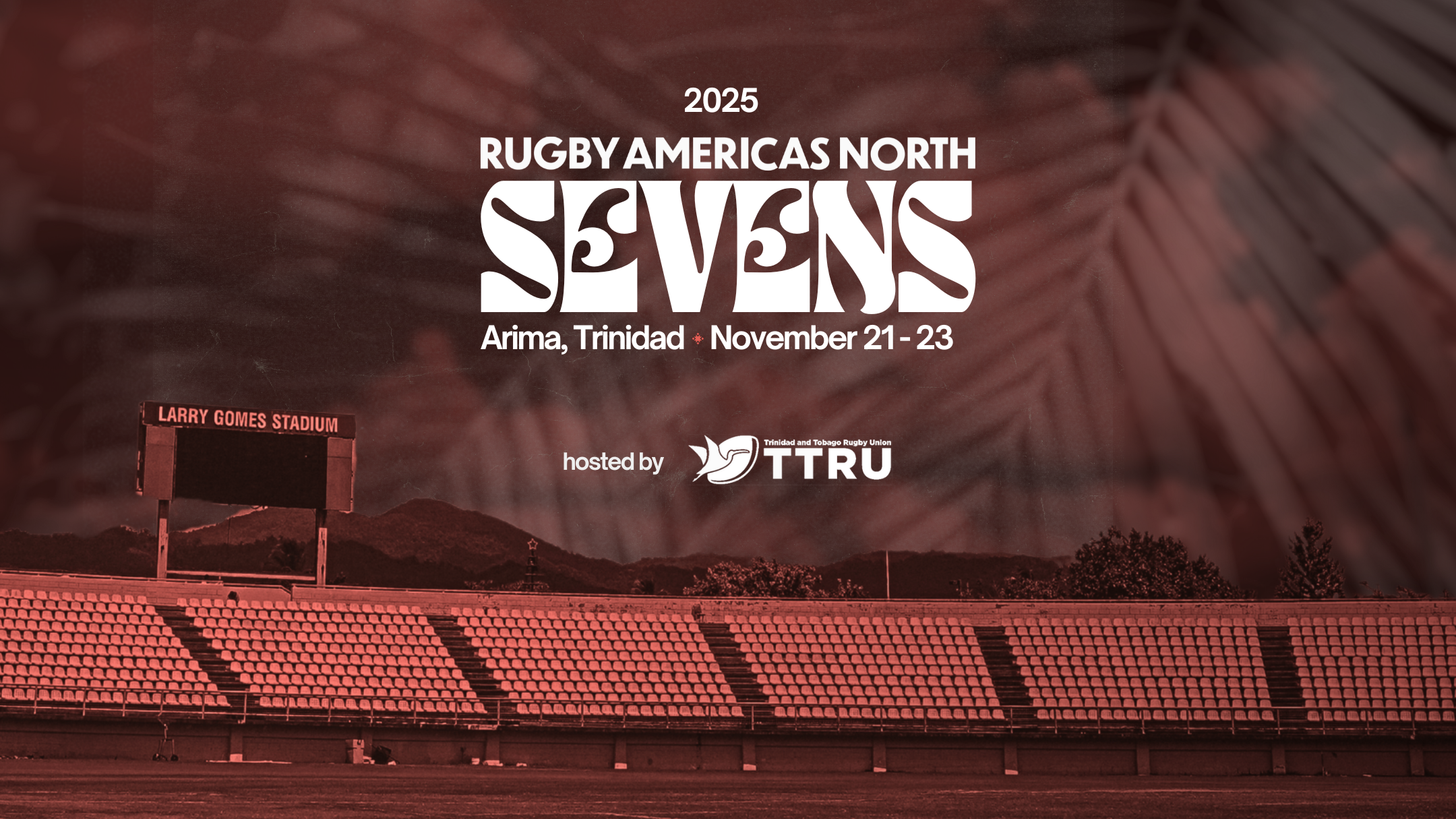The Americas Rugby Championship was born due to the real need in the Americas for a high performance competition. We look back at the ARC 2016.The Americas Rugby Championship was born as a development tournament at the end of the previous decade, offering team in USA and Canada much needed of international competition, incorporating Argentina’s second XV. In the old format, the tournament would be played at one venue over a short period of time.This being so, Canada hosted the inaugural edition in the province of Ontario in 2009; Córdoba, in Argentina, was the venue in 2010 with USA Select XV, a Canada Select and, because of the upcoming Rugby World Cup 2011, Tonga A.The tournament moved to the beautiful Vancouver Island and the quaint Westhills Stadium in Langford for the 2012, 2013 and 2014 editions, with the addition of Uruguay – replacing the Tongans – another country in need of competition ahead of Rugby World Cup 2015. In each of these tournaments, the Argentine representative was champion.A year ealierA revamped Americas Rugby Championship was in the agenda for 2017, but it was moved forward for 2016, with teams still fresh from their experiences in the successful Rugby World Cup 2015.Argentina, who was starting a team in Super Rugby, was represented by its second team, whilst the Uruguayan Teros, the Chilean Cóndores and the Brazilian Tupis ran the flag for South America Rugby, and Canada and USA represented Rugby Americas North.The start of the ARC came the first weekend of February, 2016, at the Centro de Alto Rendimiento Deportivo, under the shadows of the Andes, in Santiago de Chile.The home side was leading 25-12 with 25 minutes to play, when Brazil began a comeback that would have need a couple of minutes more. It wasn’t to be and Chile won 25-22.At home in Langford, Canada had no problems with Uruguay, beating them 33-17 with the closing of the opening round was an early final. In a changing game, Tomás Carrió’s second try and the conversion of replacement Juan Novillo sealed the 35-all draw a couple of minutes from fulltime in Houston.Cris-crossing the EquatorEvery team had to play on both sides of the Equator in a tournament that had captivating games and some surprises.Brazil had started the year ranking 45 at the World Rugby Ranking. The bonus point in Chile and a second bonus point at home in Sao Paulo against Uruguay were certainly helping. USA showcased their pride in beating Canada and Argentina XV had no issues against Chile.The highlight of the third round was the late Argentine escape at the Campus de Maldonado; a 77th minute penalty by replacement Pedro Mercerat, five minutes after he had converted a try, allowed his team avoid what was destined for a draw.Moises, the prophetThe goal of the tournament was to generate competition and opportunities; few were ready for what was to happen at Sao Paulo’s Arena Barueri.Brazil’s win against the USA Eagles in the fourth round shocked the world and put the tournament on the international map. It took a perfect 80th minute penalty from the experienced Moisés Duque, named after the prophet Mosses, to kick-start celebrations for an incredible win.The 24-23 is now part of his country’s folklore and a proud page in the tournament’s history.The following Monday, Os Tupis had jumped to 38 in the World Rugby Rankings.The Eagles travelled South to Montevideo where they needed a win in the fifth round if they had the hope of being inaugural champions – they needed Brazil to beat Argentina. They did their part with a 29-25 win at the Charrúa Stadium, but Argentina XV was too strong for the Brazilians, celebrating the 42-7 with a trophy winning performance.Needed competition“This tournament was born to offer needed competition to the high performance programmes both in Rugby Americas North and Sudamérica Rugby,” said at the end of the first ARC, Americas Rugby Chairman Agustín Pichot.“We are convinced that the competition road and working together will benefit all; it is clear this tournament is here to stay.”One hundred and nine tries were scored in a tournament played in eleven cities and six countries. It was, undoubtedly, a great start.First round:Chile 25 – Brazil 22Canada 33 - Uruguay 17USA 35 – Argentina XV 35Second round:Brazil 29 – Uruguay 33Argentina XV 52 – Chile 15USA 30 – Canada 22Third round:USA 64 – Chile 0Uruguay 21 – Argentina XV 24Canada 52 – Brazil 25Fourth round:Chile 20 – Uruguay 23Brazil 24 – USA 23Argentina XV 54 – Canada 21Fifth Round:Uruguay 29 – USA 25Chile 13 – Canada 64Brazil 7 – Argentina XV 42Final standings:1º - Argentina – 22 points2º - USA – 15 points3º - Canada – 15 points4º - Uruguay – 14 points5º - Brazil – 6 points6º - Chile – 5 points_______________________________________________________________________
LA COMPETENCIA COMO MOTOR DE CRECIMIENTO CONTINENTAL
El Americas Rugby Championship nació a partir de una real necesidad continental de tener competencia regular de alto nivel. Recordamos el ARC 2016.
El Americas Rugby Championship había nacido como torneo de desarrollo a finales de la década pasada, generando necesaria competencia para equipos de Estados Unidos y Canadá, habitualmente complicados para conseguir actividad internacional, sumando al segundo equipo argentino. En el antiguo formato, se jugaba en una única sede a lo largo de una semana.Así, Canadá fue anfitrión en la provincia de Ontario de la edición 2009, la ciudad argentina de Córdoba recibió en 2010 a USA Select XV, a Canada Select y por la cercanía de Rugby World Cup 2011 a Tonga A.El torneo se mudó a la bonita isla de Vancouver para las siguientes tres ediciones de 2012, 13 y 14, a la se reemplazó con toda lógica a Tonga por Uruguay, también necesitado de competencia de cara a Rugby World Cup 2015. En cada una de las ediciones, el campeón había sido el representativo argentino.Comienzo adelantadoSi bien estaba previsto comenzar en 2017, se apuró su lanzamiento para el 2016, con los equipos frescos después de una exitosa Rugby World Cup 2015.Argentina, que comenzaba ese año su camino en el Súper Rugby con la franquicia de Jaguares, participaría con Argentina XV, su segundo equipo, mientras que Los Teros, Cóndores y Tupis representaban a Sudamérica y Canadá y Estados Unidos a Rugby Americas North.El arranque del Americas Rugby Championship se dio en el Centro de Alto Rendimiento Deportivo de Chile Rugby, bajo la sombra de los Andes, en Santiago de Chile.El local se puso 25 a 12 faltando 25 minutos, cuando Brasil comenzó una remontada que, a falta de tiempo, terminó 25 a 22.En su casa de Langford, Canadá no tuvo inconvenientes para superar a Los Teros por 33 a 17, mientras que el cierre de la primera jornada fue una final anticipada. En un partido cambiante, con final incierto, el segundo try de Tomás Carrió y la conversión del ingresado Juan Novillo sellaron el empate en 35 en la ciudad de Houston.Cruzando el EcuadorTodos los equipos jugaron en ambos lados de la línea del Ecuador y el torneo tuvo partidos más que interesantes y sorpresas, a priori, impensadas.Brasil había comenzado el año con el puesto 45 en el ranking de World Rugby. El punto bonus obtenido en Chile, se sumó a un segundo bonus contra Uruguay en San Pablo en una segunda fecha en que Estados Unidos se impuso a su gran rival Canadá y Argentina XV no tuvo inconvenientes con Chile.El punto saliente de la tercera fecha fue el tardío escape de los argentinos en el Campus de Maldonado con un penal del ingresado Pedro Mercerat a los 77 minutos, cinco minutos después de un try convertido que había permitido el empate temporario.Si la búsqueda del torneo era la oportunidad de competencia para toda la región, pocos estaban preparados para lo que pasó en la Arena Barueri de San Pablo.El profeta MoisésEl triunfo brasilero ante Estados Unidos en la cuarta fecha shockeó al mundo y puso en el mapa este torneo. Fue un preciso kick del experimentado Moisés Duque el que permitió en el minuto 80 quedarse con un partido soñado. El celebrado 24-23 es una página de gloria del rugby regional.El lunes siguiente, los Tupis ya estaban en el puesto 38 del ranking mundial.Las Águilas debían ganar en Montevideo en la quinta fecha para seguir con chances de ser campeonas – dependiendo de Brasil. Los Teros las derrotaron por 29 a 25 y Argentina selló el título en el último partido por 42 a 7.Necesaria competencia“Este torneo nació para darle necesaria competencia tanto al alto rendimiento de Rugby Americas North como de Sudamérica Rugby,” comentó al finalizar la ARC el Presidente de Americas Rugby Agustín Pichot.“Estamos convencidos que el camino de la competencia y de trabajar juntos nos va a beneficiar a todo; por lo expuesto, quedó claro que este torneo llegó para quedarse.”Se apoyaron un total de 109 tries en un torneo que se jugó en once ciudades de los seis países participantes. Fue, sin dudas, un gran comienzo.Primera fecha:Chile 25 – Brasil 22Canadá 33 - Uruguay 17Estados Unidos 35 – Argentina XV 35Segunda fecha:Brasil 29 – Uruguay 33Argentina XV 52 – Chile 15Estados Unidos 30 – Canadá 22Tercera fecha:Estados Unidos 64 – Chile 0Uruguay 21 – Argentina XV 24Canadá 52 – Brasil 25Cuarta fecha:Chile 20 – Uruguay 23Brasil 24 – Estados Unidos 23Argentina XV 54 – Canadá 21Quinta Fecha:Uruguay 29 – Estados Unidos 25Chile 13 – Canadá 64Brasil 7 – Argentina XV 42Posiciones finales:1º - Argentina – 22 puntos2º - Estados Unidos – 15 puntos3º - Canadá – 15 puntos4º - Uruguay – 14 puntos5º - Brasil – 6 puntos6º - Chile – 5 puntos













